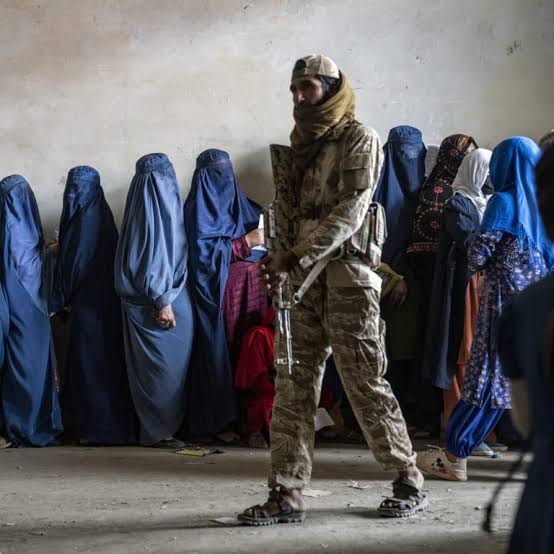RASC News Agency: As the world steps into the new year, Afghanistan grapples with an indeterminate future. The nation remains ensnared in a humanitarian crisis, as the Taliban forcefully seizes control of the government and brutally oppresses women. Despite recent votes at the United Nations suggesting a potential shift, the global community remains uncertain about how to confront these challenges.
On December 29, the United Nations Security Council endorsed a resolution advocating for an independent assessment of Afghanistan. This resolution, delineated as “forward-looking recommendations,” seeks to more comprehensively integrate Afghanistan into the international community by fostering participation in a cohesive, coordinated, and structured manner. It highlights the unsustainable nature of the current status quo, emphasizing the imperative for global engagement in addressing Afghanistan’s challenges with the Taliban, particularly after the departure of U.S.-led forces in 2021. This engagement encompasses tackling connections with terrorist groups and addressing a lamentable human rights record.
Roza Otunbayeva, the UN envoy in Afghanistan, emphasized the near-impossibility of officially recognizing the Taliban as long as constraints persist for women. Richard Bennett, the UN special rapporteur for Afghanistan, also voiced concerns about gender apartheid. The UN’s decisive move last month sends an unequivocal signal that the Taliban’s treatment of women must undergo a transformation.
While the proposal appears equitable, the expectation that the Taliban will adhere to human rights in their treatment of women and, in return, secure a place at the international table faces a stark reality on the ground. Numerous countries have engaged with the Taliban for months or even years, raising concerns about a potential regression on human rights. The Taliban’s recent appointment of its first ambassador to China, a historic diplomatic move, has occurred without public commentary from China. Accepting an ambassador traditionally necessitates recognizing the official government.
Engaging with the Taliban with the anticipation of a shift in their stance on human rights is a nuanced balancing act, particularly as the plight of women worsens. The United States has also engaged with this group, with a delegation meeting senior Taliban figures in Doha. While the U.S. had previously stipulated that addressing human rights concerns by the Taliban is a precondition for talks, recent indications suggest a strategic shift, viewing deeper interaction with the Taliban as a means to confront human rights issues. Nuraldin Azizi, acting head of the Taliban’s Ministry of Industry and Commerce, asserts that Afghanistan maintains trade relations with 60 countries, including India, China, and Pakistan. These ties are leveraged for self-sufficiency, dispelling the notion that the Taliban is as isolated as once perceived.
It seems the Taliban has adopted a game of patience with the global community. While the group considers formal recognition its ultimate goal, deeper interactions with several countries imply that this may be only a matter of time. The Taliban anticipates that the world, especially the West, will prioritize the humanitarian crisis and terrorism threat over human rights concerns. Whether the United States and others forsake Afghanistani women remains uncertain, but current indications suggest such abandonment. Engaging with the Taliban with the expectation of a change in their stance on human rights is a simplistic, albeit naive, solution, especially when human rights groups assert that the situation for women is deteriorating.
A comprehensive solution lies in the UN’s independent assessment of Afghanistan. It is imperative for the international community to deepen its involvement in human rights, particularly concerning women.
Countries like the United States and China should cease transactions or discussions with the Taliban outside established guidelines, as the group has demonstrated a willingness to benefit from any profit-sharing. If the global community is genuinely concerned about the humanitarian crisis and terrorism in Afghanistan, financial assistance through UN agencies and collaboration with regional partners like Uzbekistan, Tajikistan, and Pakistan can address both challenges. A clear and cohesive approach not only addresses these issues but also isolates the Taliban and discredits them in the eyes of the Afghanistani people.






